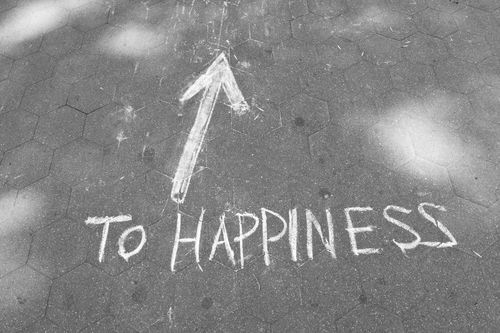Happiness is said to be the ultimate goal in life. For many people this theory holds much truth. The pursuit of happiness is alive and well in our society. There are however, a growing number of people in the world who have a deep fear of being happy.
Fear and happiness usually have little to do with each other. How can you be afraid of being happy? How can you connect the positives to the negatives? But for many people, the fear of happiness is all too real.
There are a variety of reasons someone can develop an aversion to happiness. In some cases, an underlying mental illness is at play. Studies have shown that those who struggle with depression can often consciously or subconsciously avoid situations in which happiness and joy are the objectives such as parties, social outings and relationships. The depression becomes the focus for those individuals, shadowing the benefit of a potential period of happiness. Eventually, joy and happiness feel uncomfortable and unfamiliar. Being an introvert can then feel safer to the individual dealing with depression, and limiting social interaction and instances of joy can become the norm. The depression can cause them to feel undeserving of happiness. Happiness then becomes a foreign concept that is often accompanied by fear.
People who deal with different types of anxiety can also fear happiness. The fear then feeds the anxiety causing a storm of negative emotions. Anxiety in general is a fear of the uncertainties that often pose no real threat. But to someone dealing with anxiety, a world that may seem harmless to others can be a lifelong struggle affecting every aspect of their daily lives. Anxiety on its own has an effect on overall happiness. But the fear of the downs in life can mask the joys that life has to offer. For those with anxiety, the worry and fears that day to day life can bring will leave little time to take in and savor the happy times. People with anxiety can have an increase in anxiety when they allow themselves momentary happiness. This is because it means that they have let down their internal guard momentarily, and have made themselves vulnerable to the things they most fear in life. The constant worrying becomes second nature and happiness is often pushed to the sidelines.
Those who have had a joyful experience, only to have it immediately followed by a negative one can also have a fear of happiness as they can associate happy events in life with a deep sorrow. The idea that bad things happen as the result of being “too happy” is then born. Researchers abroad have developed a “Fear of Happiness” scale to evaluate those who make this association. It is thought that for those who have experienced a time of joyfulness followed by something negative happening enough times over again, have a selective perception of life and are absorbing the negatives in life solely because of a negative expectation out of life.
Others who are somewhat perfectionists and overachievers can fear happiness too. They can fear happiness and joyfulness because they associate happiness with laziness, unproductively, and failure. They can view the pursuit of happiness as a distraction from their ultimate goals in life.
So how can you tell if you too are afraid of happiness?
Ask yourself this:
- Do you fear something bad happening if you allow yourself to be happy?
- Do you feel that there is a risk of being “too happy?”
- Do you feel like you do not deserve to be happy?
The fear of happiness is all too real in our society. Therapy and counseling are both useful tools in combating this fear. It is important that when treating any underlying mental health issue that the fear of being happy is addressed. If you feel that the idea of happiness leaves you feeling anxious or if you feel that you are not worth of life’s happiness, there is always hope. Talk to someone. Seek counseling. And most importantly know that you are not alone in this journey and that you do indeed deserve to bask in life’s happy moments.











